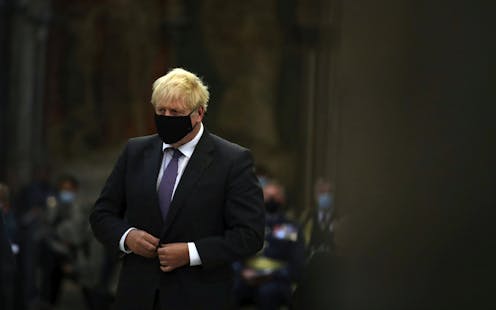As a second wave of COVID looms in the UK, Australia is watching closely
- Written by The Conversation
 Aaron Chown/AAP
Aaron Chown/AAPThe United Kingdom has already been battered by COVID-19, with about 410,000 cases and more than 41,000 deaths.
But after some respite over summer — and entreaties to “Eat Out to Help Out” to boost the economy — the UK is now facing a terrifying second wave. This week, experts predicted almost 50,000 new cases...
Read more: As a second wave of COVID looms in the UK, Australia is watching closely

















